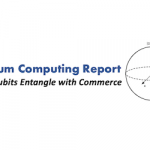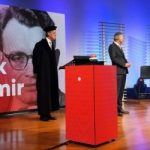AUKSUS More than Submarines: Includes Quantum Sensors, Quantum Technologies

(SMH) There is more to the AUKUS-technology-sharing pact with the US and the UK than submarines. This article is extensive and discusses numerous weapon systems including hypersonic missles, undersea capabilities, AI and more. IQT-News summarizes here the authors’ discussion concentrating on quantum technologies.
The future of war (and many industries) is closely entangled with advancing computer power. But there are limits to even the sprawling supercomputers housed in universities today. For example, a computer trying to find the shortest possible route someone could take if they were travelling through, say, 200 cities and back home, has to try each possibility one after another. But “there’s 10 to the power of 375 different possibilities, that’s a one followed by 375 zeroes,” says ANU quantum physicist Ben Buchler. “No computer could ever solve that. At least, no kind we have now.
“A quantum computer will, essentially, try all these different paths simultaneously. You can write a program that senses which path is the shortest,” he says. ANU is developing a diamond-based quantum computer, as well as harnessing optics (lasers) to build quantum technologies.
That’s a game-changer for defence, says Webb. “It’s one of the reasons it’s so scary. It will render a lot of our encryption obsolete
War has already changed in one big way. The first act of a major conflict will now play out in cyberspace, says Professor Michael Webb, director of the Defence Institute at the University of Adelaide. “If you think back to the Gulf War, we were fighting first for supremacy in the air.” Today, because of how connected the world is, “we’ll be fighting for supremacy in cyber”.
At the Australian Strategic Policy Institute, defence analyst Andrew Davies agrees the technology-sharing deal has let Australia “inside the tent”. Up until now, trade restrictions in the US have meant high-tech collaborations could only go so far “because every time you talk to an American about something high tech, they talk to a certain point and then they say, ‘Oh but because of [regulations] I can’t say anything more about that.’ ”
The way to fight back is with quantum encryption, Buchler says, using entanglement to “teleport information” in a new form of encryption “guaranteed by the laws of physics”.
Others are excited by the possibility that quantum computing will speed up AI learning. But, with AI already helping quantum scientists such as Buchler in the lab, he expects “AI will be helping us build better quantum computers long before quantum computers help us build better AI”.
The unparalleled sensitivity of quantum technology means it also opens up enormous potential in refining sensors – such as for finding a stealth submarine or even seeing around corners. Some of those technologies are already proven, Buchler and Webb say. The challenge now is scaling them up into a product that can be used in the field, mounted to a plane or a ship, for example.
“If you’ve got a plane and you’re flying along looking for a sub, you can try and detect the magnetic signature from its metal,” Buchler says. “If you’re looking for tunnels underground, there will be less ground beneath you so you can use a quantum sensor to detect how gravity is different locally.” Meanwhile, Webb’s team is developing a suite of quantum sensors honed to pick up even the faintest radio signals (from enemy communications, for example).



















